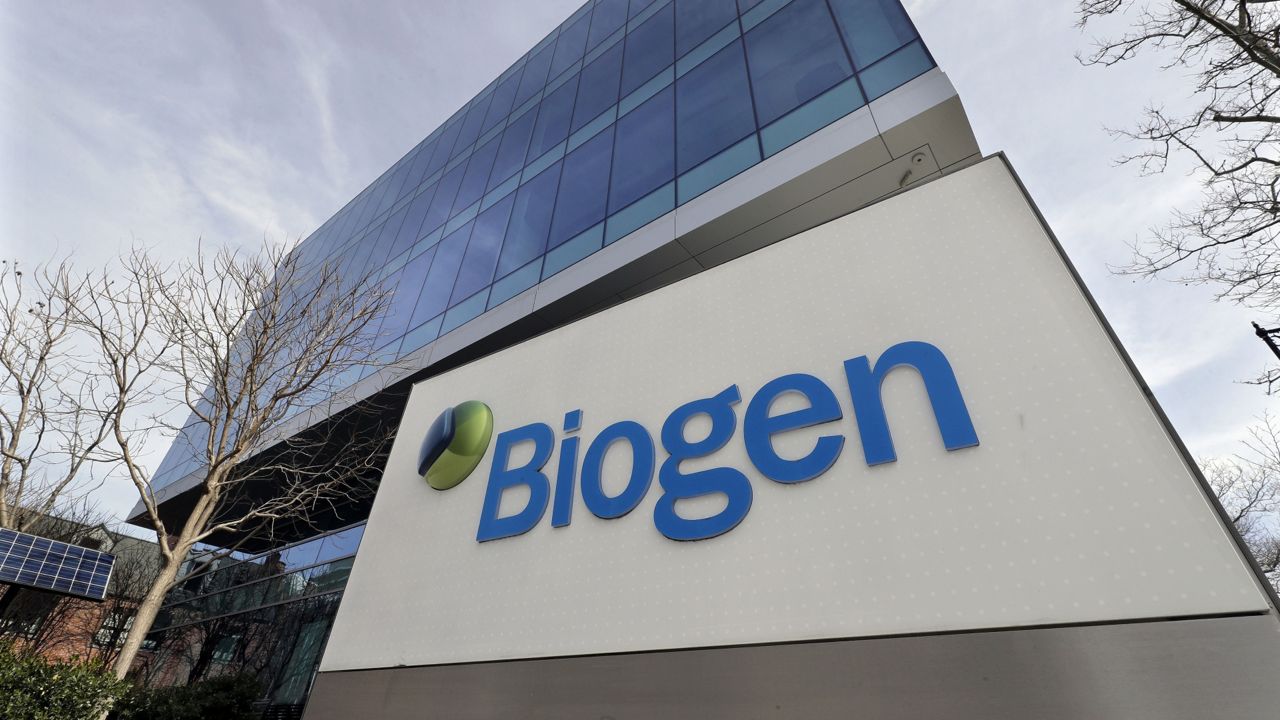A new Congressional report released Thursday is taking aim at the Federal Drug Administration’s speedy approval of an Alzheimer’s drug, saying the process was “rife with irregularities” and suggesting changes for future drug approvals.
The 18-month investigation, launched by the House Committee on Oversight and Reform and the House Committee on Energy and Commerce, looked into the FDA’s regulatory dealings with Biogen Inc. as it manufactured its drug aducanumab, also known as Aduhelm.
Aduhelm in 2021 was the first new Alzheimer’s drug introduction in nearly two decades. Initially priced at $56,000 a year, analysts predicted it would quickly become a blockbuster drug that would generate billions for Biogen.
But doctors were hesitant to prescribe it, given weak evidence that the drug slowed the progression of Alzheimer’s. Insurers blocked or restricted coverage over the drug’s high price tag and uncertain benefit. Even the company’s decision to slash the drug’s price in half— to $28,000 a year — did little to improve uptake.
The FDA had first approved the drug from Biogen based on study results showing it seemed “reasonably likely” to benefit Alzheimer’s patients. The drug, which Biogen developed with Japan’s Eisai Co., did not reverse mental decline, only slowing it in one study.
The new Congressional report alleges representatives from the FDA and Biogen engaged in over 100 phone calls or meetings dating back to 2019 in order to shepherd along approval of the company’s drug, actions which lawmakers say “consisted of atypical procedures and deviated from the agency’s own guidance.” The FDA acknowledged that more meetings with Biogen had possibly taken place, the report noted, as the agency “lacked a ‘clear record’ of the informal meetings and other interactions between agency staff and Biogen.
The report also alleges Biogen had “aggressive launch plans for Aduhelm—including in its label and pricing—despite concerns about efficacy, safety, and affordability.”
Thursday’s report also pointed to a previous FDA internal investigation that found “the extent of collaboration between FDA and Biogen was atypical and ‘exceeded the norm in some respects,’” though the same review found the actions were “consistent with the agency’s public health mission given the potential for the first disease modifying drug for Alzheimer’s disease.”
When the FDA approved the drug in June of last year, it did so after several months of a “traditional approval pathway,” the Congressional report noted, and after warnings from independent advisers said the much-debated treatment hadn’t been shown to help slow the brain-destroying disease.
The approval came despite a scathing assessment by the FDA’s outside panel of neurological experts. The group voted “no” to a series of questions on whether reanalyzed data from a single study submitted by Biogen showed the drug was effective.
Biogen halted two studies in 2019 after disappointing results suggested aducanumab would not meet its goal of slowing mental and functional decline in Alzheimer’s patients.
Several months later, the company reversed course, announcing that a new analysis of one study showed the drug was effective at higher doses and the FDA had advised that it warranted review. Company scientists said the drug’s initial failure was due to some patients not receiving high enough doses to slow the disease.
But the changes to dosing and the company’s after-the-fact analysis made the results hard to interpret, raising skepticism among many experts, including those on the FDA panel.
The FDA isn’t required to follow the advice of its outside panelists and has previously disregarded their input when making similarly high-profile drug decisions.
To prevent another such drug from being rapidly approved, the Congressional report suggested the FDA make a number of procedural changes or adjustments, including to ensure that all agency interactions with drug companies are properly recorded, to establish a joint protocol for briefing documents presented at advisory meetings and to update its industry guidance for the development of new Alzheimer’s drugs.
In a statement, a spokesperson for the FDA said the agency had “fully cooperated with the Committees’ evaluation” and will “continue to review their findings and recommendations.”
“It is important to note that the FDA’s internal review of how CDER staff interacted with Biogen, the manufacturer of Aduhelm, found that [the] center’s interactions were appropriate,” the statement continued, in part. “It is the agency’s job to frequently interact with companies in order to ensure that we have adequate information to inform our regulatory decision-making. We will continue to do so, as it is in the best interest of patients.”
Biogen said it “stands by the integrity of the actions we have taken” in a statement emailed to Reuters, adding: "As stated in the congressional report, an (FDA) review concluded that, 'There is no evidence that these interactions with the sponsor in advance of filing were anything but appropriate in this situation.’”



